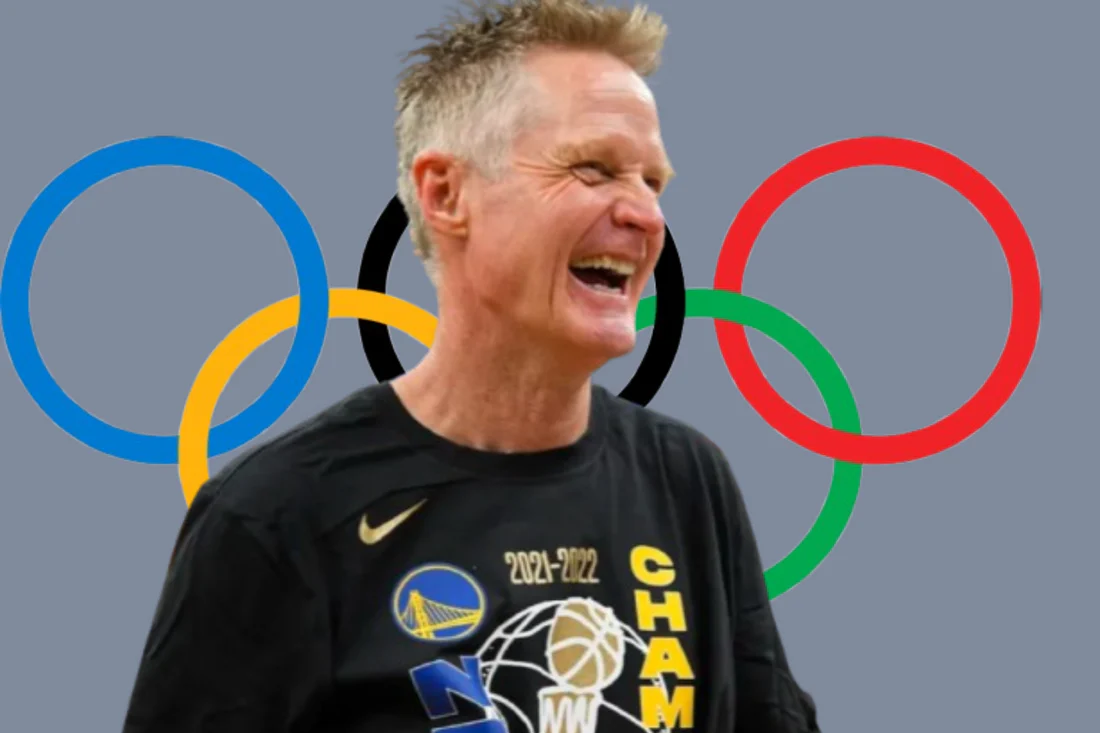
Does Steve Kerr Get Paid to Coach in the Olympics?
By Jayson Panganiban August 01, 2024 10:46
Steve Kerr, the head coach of the U.S. Olympic team for the 2024 Summer Olympics in Paris, is a prominent figure in the world of basketball. His extensive experience as a player and coach, including leading the Golden State Warriors to multiple NBA championships, has positioned him as a respected leader in the sport. However, a question often arises regarding the financial aspects of his role: Does Steve Kerr receive compensation for coaching the Olympic team? This article delves into Kerr's role, the compensation structure for Olympic coaches, and the broader context of coaching in the Olympic landscape.
Steve Kerr's Role and Involvement as Coach
Steve Kerr was appointed as the head coach of the U.S. men's basketball team for the 2024 Olympics, marking his first time in this position after serving as an assistant coach in the 2020 Tokyo Olympics. Under his leadership, the team aims to defend its gold medal, continuing a legacy of success that has seen the U.S. win seven of the last eight Olympic basketball gold medals. Kerr's coaching style emphasizes teamwork, adaptability, and a deep understanding of the game, which he has honed through years of experience in the NBA and international competitions.
Kerr's responsibilities extend beyond mere game strategy; he manages a roster filled with NBA superstars, each with his own expectations and playing styles. This requires tactical acumen and exceptional interpersonal skills to foster team chemistry among elite players. As he navigates the complexities of Olympic competition, Kerr must also adapt his strategies to the unique challenges posed by international play, where the rules and style of basketball can differ significantly from the NBA.
Compensation for Coaching the Olympic Team
The question of whether Steve Kerr receives a salary for his role as the Olympic coach is nuanced. Historically, coaches of national teams, including Olympic teams, often do not receive a salary in the same way they would for their regular coaching positions in professional leagues. Instead, many coaches volunteer their time, driven by the honor of representing their country and the opportunity to work with top-tier talent.
In Kerr's case, while specific details about his compensation for the Olympic role have not been publicly disclosed, it is widely understood that many coaches in similar positions still need to receive a traditional salary. Instead, they may receive stipends or bonuses based on the team's performance, such as winning medals. This model reflects a broader trend in Olympic coaching, where the prestige of the role often outweighs the financial incentives.
Financial Arrangements and Policies
The financial arrangements for Olympic coaches can vary significantly depending on the sport, the governing body, and the circumstances surrounding the Olympic Games. The U.S. Olympic and Paralympic Committee (USOPC) oversees the funding and support for Olympic athletes and coaches, but the compensation policies for coaches are unique across all sports.
Typically, the USOPC provides resources for training, travel, and other expenses related to Olympic preparation. However, coaches' actual salary or stipend is often determined by the individual sports' governing bodies, such as USA Basketball. These organizations may have budgets and funding sources that influence how much they can compensate their coaches.
Moreover, sponsorship deals and partnerships also impact the financial landscape surrounding Olympic coaching. Coaches may benefit indirectly from these arrangements, as successful Olympic campaigns can increase funding and support for their respective sports, ultimately benefiting the coaches and athletes involved.
Broader Context of Olympic Coaching
The landscape of Olympic coaching is complex and multifaceted. Coaches are typically selected based on their experience, success in their respective sports, and ability to manage high-pressure situations. The selection process often involves input from national governing bodies, which assess candidates based on their track record and compatibility with the team's goals.
Coaching responsibilities at the Olympics differ significantly from those in professional leagues. Olympic coaches must prepare their teams for a condensed tournament format, often facing various international opponents with different playing styles. This requires a flexible approach to strategy and player management, as coaches must quickly adapt to the strengths and weaknesses of their opponents.
Additionally, Olympic coaches often have to balance the expectations of their athletes with the demands of national pride. The pressure to perform at the highest level can be intense, as the stakes are not just about winning medals but also about representing the United States on a global stage.
While the specifics of Steve Kerr's compensation for coaching the U.S. Olympic basketball team still need to be clarified, he will likely not receive a traditional salary for this role. Instead, his involvement reflects a commitment to the sport and the honor of representing his country. The landscape of Olympic coaching is characterized by prestige, responsibility, and the unique challenges of international competition. As Kerr leads the U.S. team in pursuit of gold in Paris, his role exemplifies the dedication and passion that define Olympic coaching, transcending financial considerations.


































































